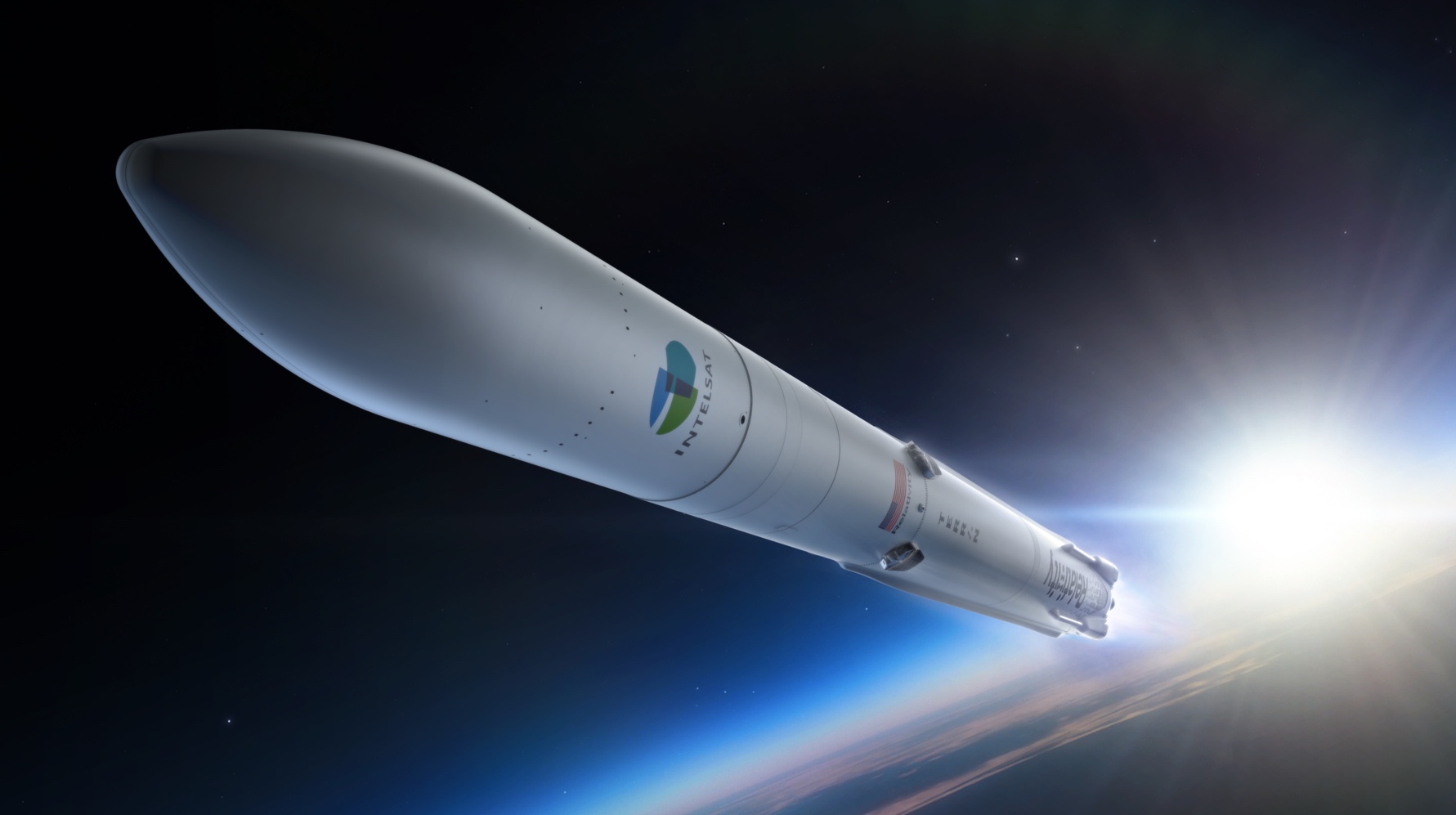WASHINGTON — Satellite operator Intelsat has signed an agreement with Relativity Space for multiple launches of that company’s Terran R reusable launch vehicle under development.
The two companies announced Oct. 11 they had signed a multi-year, multi-launch agreement for Terran R launches of Intelsat satellites starting no earlier than 2026, the year Relativity currently projects Terran R making its debut. The companies did not disclose the number of launches included in the agreement or the time span of the agreement.
The companies also did not disclose the value of the agreement, although Relativity Space said it now has a backlog of more than $1.8 billion from nine customers. The company said in April it had a backlog of $1.65 billion.
Intelsat, in a statement, praised Relativity for an “innovative design and production process” for Terran R, in the words of Luc Froeliger, senior vice president of space systems. However, the company didn’t go into details about why it procured multiple launches of a vehicle that is still about three years from its first launch.
One possibility is concerns about availability of launch given growing demand, particularly from low Earth orbit broadband constellations, and a supply of existing and new vehicles that is not keeping up. “The space industry clearly requires more commercially competitive, diversified and disruptive launch capacity,” Tim Ellis, chief executive of Relativity, said in the statement. “Relativity is developing Terran R as a customer-focused reusable launch vehicle to solve this need.”
That demand was one reason Relativity decided in April to discontinue its Terran 1 small launch vehicle that failed to reach orbit in its only launch in March. The company argued that the “biggest market opportunity” was at the heavy end of the market, which the Terran R, which can place up to 5,500 kilograms into geostationary transfer orbit while recovering the first stage, can serve.
“We see this big gap between supply and demand” at the heavy end of the launch market, said Josh Brost, senior vice president at Relativity Space, during a panel at World Satellite Business Week a month ago, adding that the company expected that imbalance to last “for a very long time.”
He said the experience from the Terran 1, including building up a team and key technologies like additive manufacturing, will translate to the Terran R. “It led to us learning how do you design a system, how do you operate a system, how do you qualify it, all of which feeds into Terran R to give us a much better understanding of how long is it going to take for us to develop this much larger launch system that’s much more capable.”
Relativity has provided few updates on the development of Terran R since the April announcement it was discontinuing the Terran 1, which also revealed design changes in the Terran R since the company first announced plans to develop it in 2021.
Ellis, in a prerecorded presentation aired at the 26th Annual International Mars Society Convention Oct. 8, said the company was making good progress on the Terran R. “We are 100% focused on Terran R. Of our 1,000-person team or so we have now, everybody is working on Terran R and the 3D-printing technology that supports Terran R,” he said.
He said Relativity expects to complete a preliminary design review of Terran R near the end of this year or early next year, and has recently performed its 500th engine test. “We’re on track for first launch in 2026,” he said.
Ellis explained that one reason for pressing ahead with Terran R was a lack of competition for SpaceX in the launch market. “Eight years after founding Relativity, there is still not a second great commercial launch company,” he said. “It’s clear on the commercial side there is still not really an obvious second player that is just as quickly moving, low cost, and has a very capable launch vehicle in the heavy-lift payload class.”
